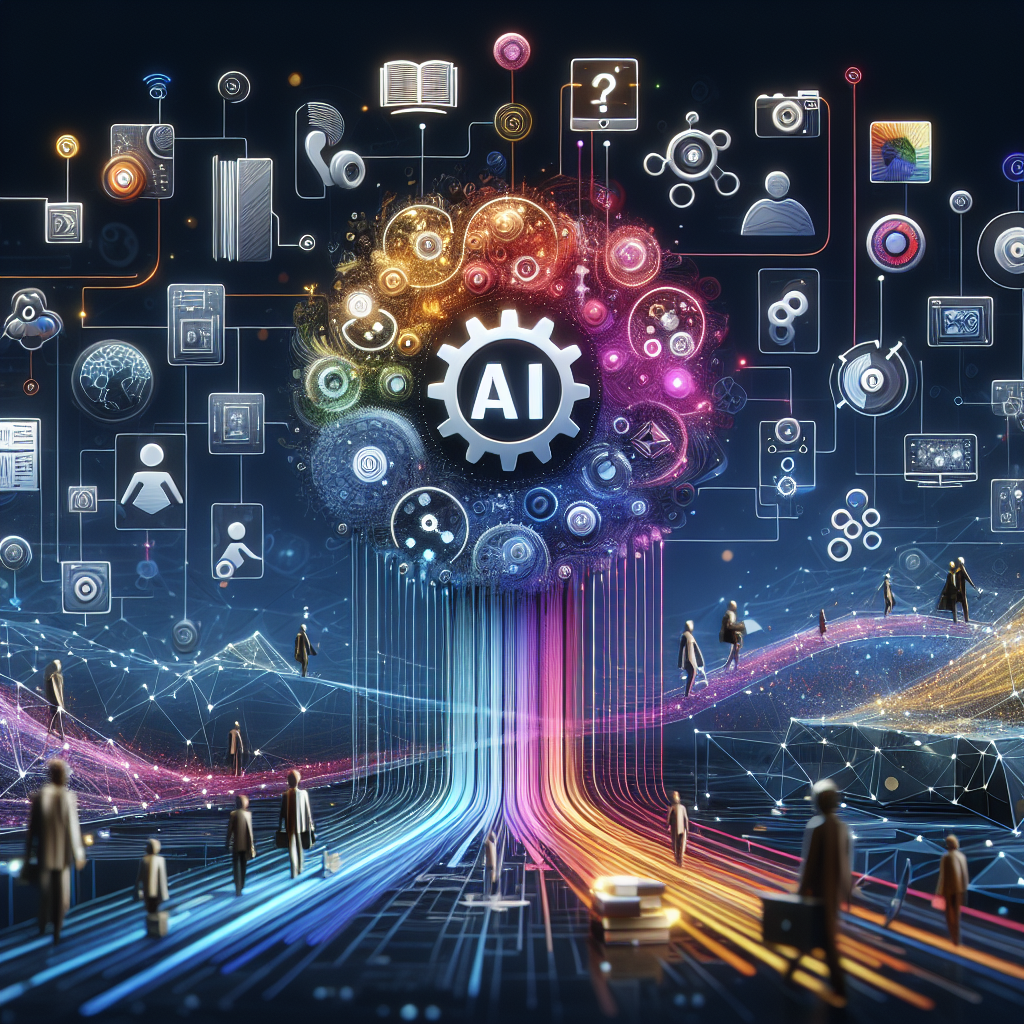Artificial intelligence has become a widely used technology in the realm of personalized content recommendations, making it easier for individuals to discover new content that matches their interests and preferences. This technology uses data analytics and machine learning algorithms to analyze a user’s behavior, preferences, and past interactions with content in order to suggest what they may be interested in next. As such, the impact of artificial intelligence on personalized content recommendations has been significant, shaping the way we consume and engage with content online.
One of the key benefits of artificial intelligence in personalized content recommendations is that it helps users discover content that is relevant to them. By analyzing a user’s browsing history, search queries, and interactions with content, AI algorithms can create personalized recommendations tailored to the individual’s interests and preferences. This not only saves users time and effort in finding content that they may enjoy but also enhances their overall user experience by providing them with content that is more likely to resonate with them.
Furthermore, artificial intelligence can also help content creators and distributors reach a wider audience by recommending their content to users who are most likely to engage with it. By analyzing user data and behavior patterns, AI algorithms can identify users who are similar to those who have shown interest in certain types of content, and recommend that content to them. This can increase the visibility and reach of content, leading to higher engagement and potentially more revenue for content creators and distributors.
Moreover, artificial intelligence can also improve the accuracy and relevance of personalized content recommendations over time. As users interact with recommended content and provide feedback on their preferences, AI algorithms can continuously learn and adapt to their preferences, refining and improving their recommendations. This iterative process can lead to more accurate and personalized recommendations that reflect the user’s changing interests and preferences, resulting in a more tailored and engaging user experience.
However, the impact of artificial intelligence on personalized content recommendations is not without its challenges. One of the main concerns is the ethical use of personal data and user privacy. AI algorithms rely on user data to create personalized recommendations, which raises concerns about how that data is being collected, stored, and used. There is a growing awareness of the need to protect user privacy and ensure that personal data is handled ethically and securely when using AI in personalized content recommendations.
Another challenge is the potential for bias in AI algorithms, which can lead to skewed or limited recommendations that do not accurately reflect the diversity of content available. Bias can occur when AI algorithms are trained on data that is unrepresentative or contains inherent biases, leading to recommendations that are narrow or exclusionary. It is important for developers and users of AI technology to be aware of these biases and take steps to mitigate them in order to ensure that personalized content recommendations are fair, accurate, and inclusive.
Despite these challenges, the impact of artificial intelligence on personalized content recommendations is likely to continue to grow and evolve in the coming years. As AI technology advances and becomes more sophisticated, the ability to create personalized recommendations that are truly tailored to individual preferences and interests will only improve. This will not only enhance the user experience but also benefit content creators and distributors by helping them reach and engage with their target audience more effectively.
In conclusion, artificial intelligence has had a significant impact on personalized content recommendations, revolutionizing the way we discover and engage with content online. By using data analytics and machine learning algorithms, AI technology can create personalized recommendations that are tailored to individual preferences and interests, enhancing the user experience and improving the reach and engagement of content creators and distributors. While there are challenges and concerns surrounding the use of AI in personalized content recommendations, the potential benefits and opportunities outweigh these challenges, making it an essential tool for content discovery in the digital age.
FAQs:
Q: How does artificial intelligence analyze user data to create personalized content recommendations?
A: Artificial intelligence algorithms analyze a variety of user data, including browsing history, search queries, and interactions with content, to create personalized recommendations. These algorithms use machine learning techniques to identify patterns and preferences in the data and generate recommendations based on those insights.
Q: How does artificial intelligence improve the accuracy and relevance of personalized content recommendations over time?
A: AI algorithms improve the accuracy and relevance of personalized content recommendations over time by continuously learning and adapting to user preferences. As users interact with recommended content and provide feedback, AI algorithms adjust their recommendations to reflect those preferences, leading to more accurate and personalized recommendations.
Q: What are some of the challenges associated with using artificial intelligence in personalized content recommendations?
A: Some of the challenges associated with using artificial intelligence in personalized content recommendations include ethical concerns around data privacy and security, bias in AI algorithms, and the need to ensure that recommendations are fair, accurate, and inclusive. Developers and users of AI technology must be aware of these challenges and take steps to address them in order to create personalized recommendations that are valuable and trustworthy.
